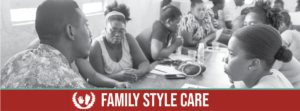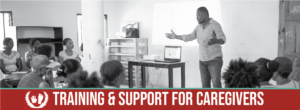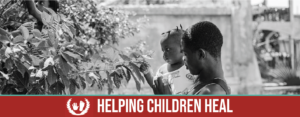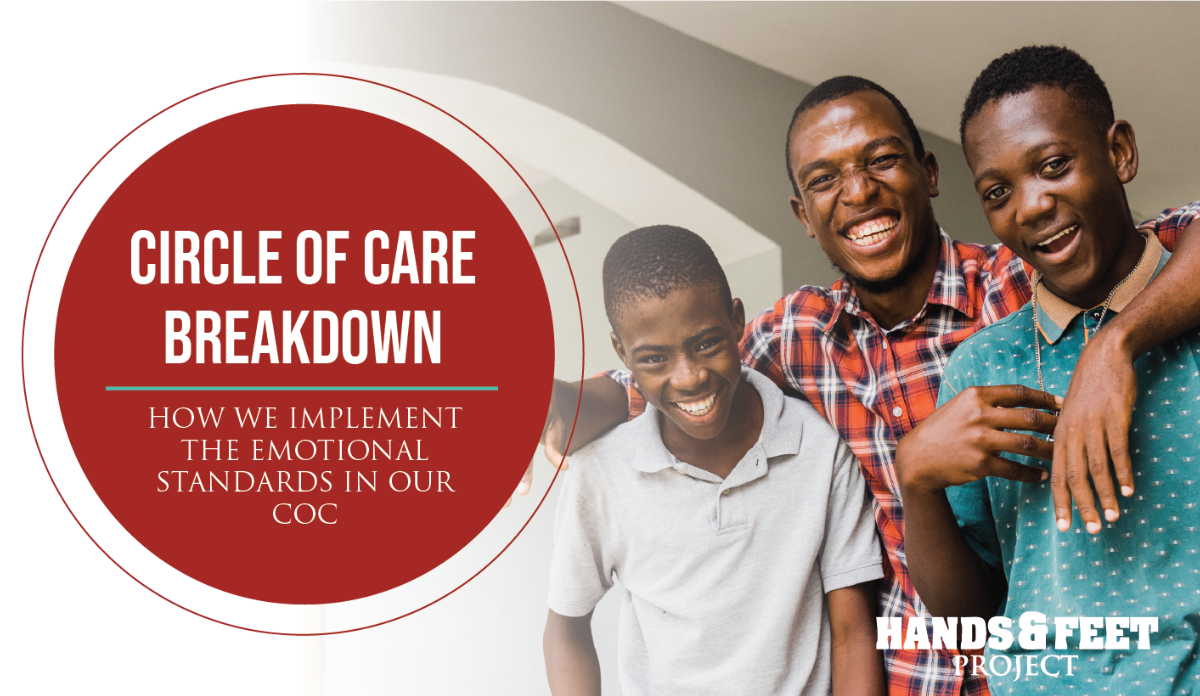Our team of caregivers and the standard of excellence we strive for is affectionately called our “Circle of Care” (COC). The Circle of Care is at the heart of how we serve in Haiti. The COC approach is used to ensure the Physical, Emotional, Spiritual, and Educational well-being of every child, adolescent, young adult, and family we serve.
This quarter, we want to tell you more about how we implement the Emotional Standards of our Circle of Care. Here are a few different ways we implement emotional care in our Providing Families Project through the COC approach.

At Hands and Feet Project, we have established a model of “family-style care” where every child has an opportunity to build healthy new attachments with members of their Hands and Feet Project family. Within our Children’s Villages, our caregivers will be the primary attachment and therefore will have the most influence on any given child. They will administer the day-to-day care of the children and oversee their development. Though it is impossible to replace the role of natural mothers and fathers, our hope is that our caregivers will develop maternal, lifelong, and nurturing bonds with the children, allowing them to begin rebuilding healthy attachments with a stabilizing adult relationship.

The primary role of Hands and Feet Project in the social and emotional development of the children in our care is to help them heal to the point where they are able to begin making healthy new attachments with their caregivers, as well as other people in their life. The process in which we aim to accomplish this is to provide individual evaluations with child advocate experts, implement recommended actions, track progress, and help each child understand and process their story.

Attachment disorders arise from failure to form normal attachments to primary caregivers in early childhood, usually resulting from experiences of neglect, abuse, frequent change of caregivers, and abrupt separations from caregivers between the age of six months and three years. Essentially every one of our kids come from one of these situations, so it is critical that we begin the process of building healthy new attachments as early as possible. This is accomplished through attachments to caregivers, other children on campus, and staff. Children are also provided opportunities to connect with other adults and children outside of the Hands and Feet Project campus. At a minimum, these opportunities occur at school, at church, and around the neighborhood. Children are encouraged to get to know others outside of Hands and Feet Project, and as they grow they are given more freedom to pursue those relationships.

Success of our mission is largely determined by the quality of our caregivers and the relationships they form with the children of Hands and Feet Project. Recognizing the importance of this role, we require ongoing training and support to ensure that each caregiver has every tool needed to succeed in their job. The overall support and training we provide falls into three categories. First, discipleship through bible studies and attending church. Second, contextualized training in all the areas that affect an orphaned or abandoned child. Lastly, accountability through regular meetings with site directors, performance reviews, and incentives. As you can see, caregivers play an essential role in achieving Hands and Feet Project’s vision and goals. Thus, we maintain strict requirements of our caregivers:

